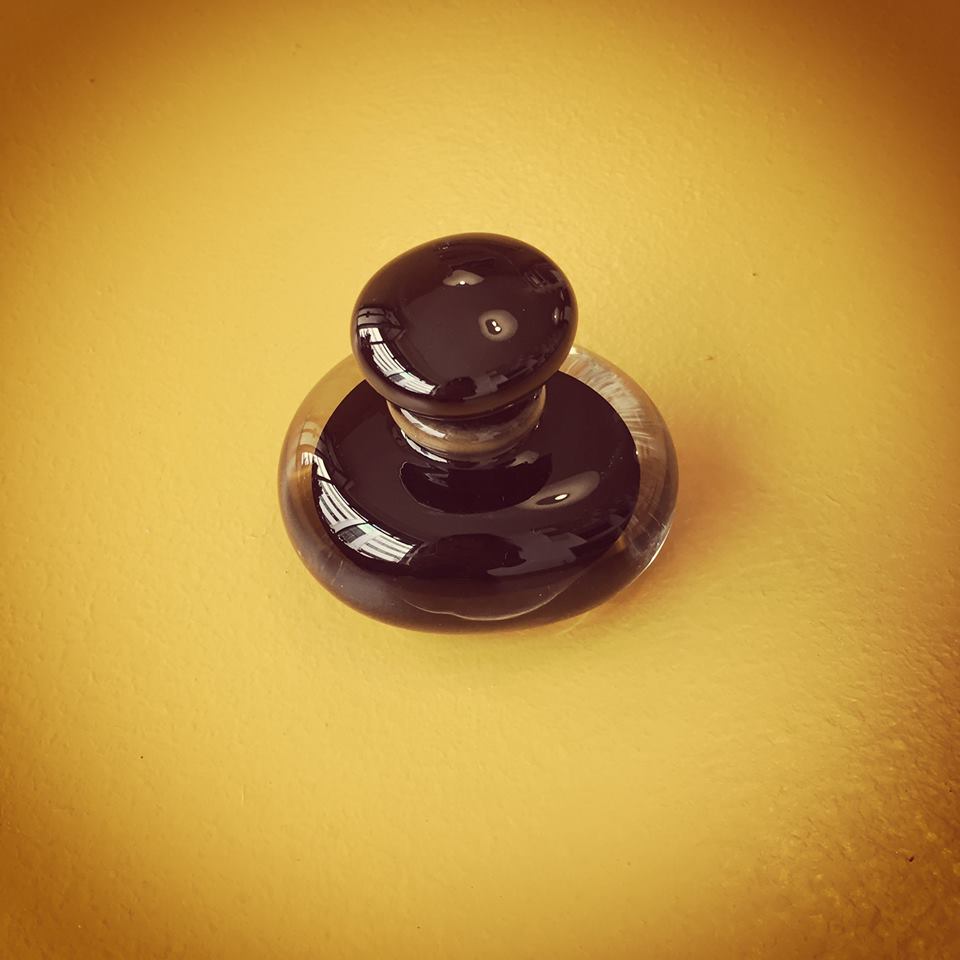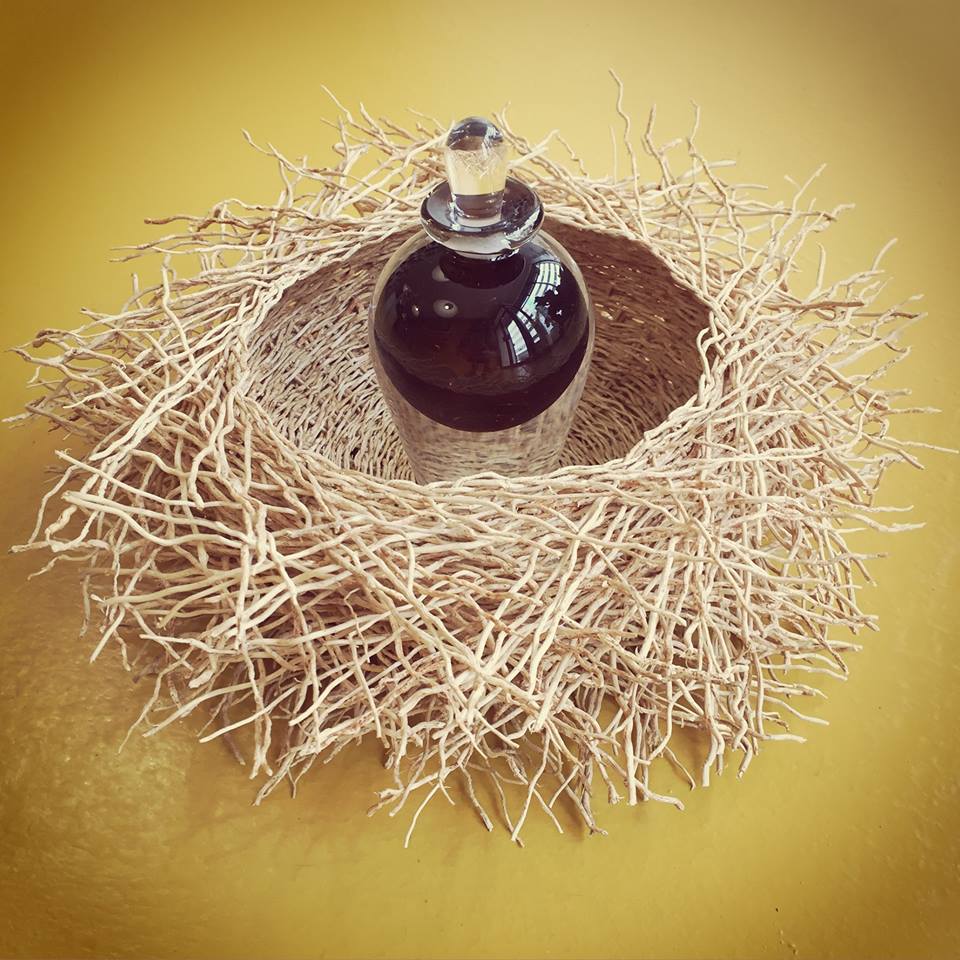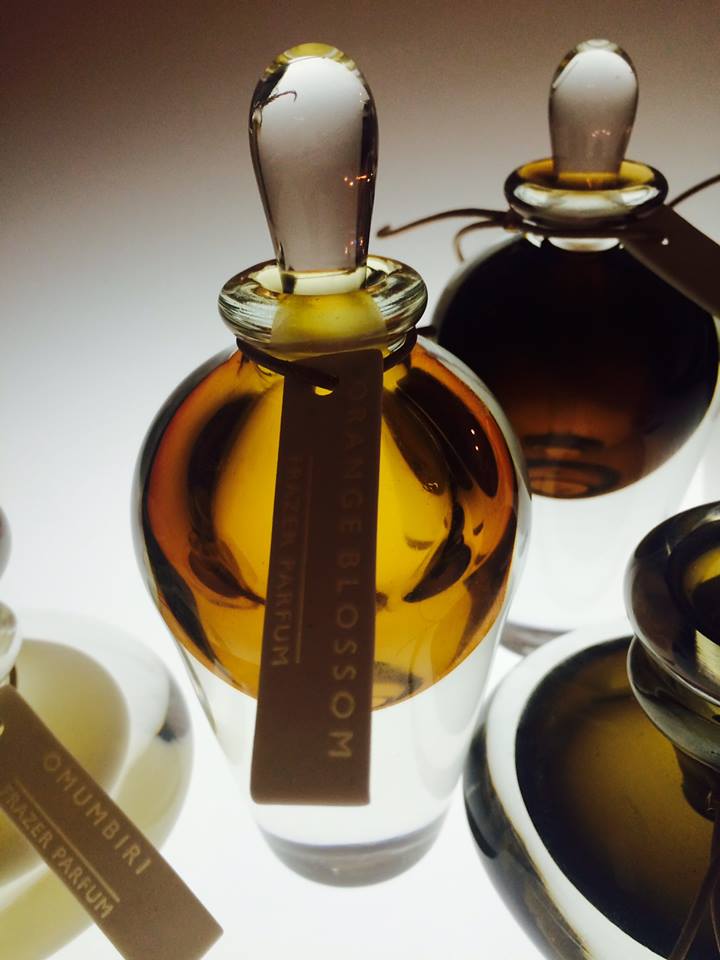Tammy Frazer
Frazer Parfum
Tammy Frazer
Founder
Can you tell us about yourself and your life growing up?
I grew up in a small tropical beach town called Durban in KwaZulu-Natal on the east coast of Africa. Growing up in a fairly uncomplicated place (think The Wonder Years), what was nurtured was my imagination. I now live in Cape Town, voted as the Design Capital of the World, and people often note that so many of the creators and designers living in the design capital, herald from KwaZulu-Natal. Being an observer of my grandfather’s tremendous success with Olay, from the creation of the formula to building the business, was also a powerful memory growing up. The fact that someone close to me had been so successful in the beauty industry… it was as though it gave me permission to believe I could do the same.
Have you always had a interest in perfume or smell?
I have always had this ability to look at things with a micro perspective, which I feel is my x-factor. What I mean by that is I take in the smallest of details and I feel them acutely, whatever they may be: the scent of clover in cut grass is ever-present in my memory, or warm fruit on a mulberry tree and acidic radish leaves in the flower-bed under my window. All became lexicons for what I understood things to smell like.
But there was always a disconnect for me between packaged synthetic perfume and the scents I loved in nature. From young, a strong sense of smell - with my nose as my primary sense - raised my curiosity when it came to all beauty products, especially with having had so much exposure to the industry growing up.
Do you have any strong scent memories growing up?
In my early teens, I experienced the rite of passage of selecting my first scent - it was Clarins Eau Dynamisante, perfectly appropriate for that age. But soon I experimented with layering the body milk and the fragrance. Each had its own identity, but they complimented as a unison when paired. Understanding how the scent in each product was constructed for its unique medium piqued my creative inquisitiveness.
In my 20s, I found an apothecary in Prague - Hortus Botanicus - it had a sublime chamomile flower fragrance. The way they muddled fresh sweet basil tones plays a role in the way I compose perfume today. My first trip to a French perfumery was a glorious engagement with a fragrance by Jean Claude Ellena - it was inspired by the scent of baking bread!
When did you begin to discover a love for the art of fragrance and scent making?
I’ve always been a late bloomer. But not knowing what I wanted to do until I was 29 allowed me to study many things, from fitness, writing, make-up, finance, computers, design and then finally a Masters in Communication. All of this equipped me to organically grow a business that holds true values like community, collaboration and a grassroots approach to sourcing.
For me, becoming a perfumer, happened as an epiphany, overnight on a Sunday. When I realized that I wanted to be perfumer for the rest of my life, this was my calling. I was living in Australia, working in a bank and overnight I just knew my true calling. With haste, I resigned on Monday and prepared to move back to Africa.
Were you self-taught or did you enroll in classes to learn the craft?
I am largely self-taught. When I decided to become a perfumer, in 2007, I visited ISIPCA in Versailles and spent time with the Dean, but they only offered a week long course in naturals, so I felt it was not the place for me. I promptly boarded the TGV for Nice, hired a car and visited as many perfume houses as would see me, in the quest to find farmers, and learn directly from them about the precious botanicals, their harvesting methods and distillation.
So, I am self-taught, but many important people contributed to my career as a perfumer that should be acknowledged. A man who remembered my father from when he worked at Givaudan allowed me to come to Switzerland for some training; a perfumer in Grasse at the natural division of IFF (Laboratoire Monique Remy) showed me her store of ambergris and suggested to me a trip to find the wild harvested Narcissus in the Provençal mountains; a buyer of aromatherapy oils invited me to Madagascar with 30 Japanese botanists to learn about what the island has to offer.
Each of my journeys and adventures equipped me with memories and an education that I could instill in my fragrances.
What is a personal motto or promise that you keep for yourself and brand?
Collaboration is key to my success. Being able to cross-pollinate not only information but craft and design. Allowing an artist or artisan from another field, to think in the medium of fragrance is very rewarding personally - like my glass-blower, or my porcelain artists, the sustainable forestry organization we use; or a photographer or advertising agency. It sets Frazer Parfum apart. Showcasing African luxury and local design to the rest of the world has been part of my story and, sometimes I almost feel like an ambassador for the continent, for natural raw materials and for sustainable business.
The art style of your designs are both beautiful also they seem to be in touch with nature yet modern. What effect does the culture of Africa effect your work?
It influences and runs as a thread throughout every aspect of my aesthetic. Leaving Africa in my 20s and then returning a decade on, gave me a unique perspective and appreciation, objectivity in the beauty of what Africa has to offer and I celebrate this through the talented people that live and breathe this continent. Many people forget that Africa itself is a mix of the modern and the traditional; of 21st-century technology with human - even tribal - based solutions.
How and when did you start the brand?
1 January 2008, I launched with a small stand at Design Indaba, which is one of Africa's most prestigious design expo, and a conference with speakers, delegates and visitors from around the world. My first stockist was Harrod's of London, in their perfume atelier. I launched a small lab and shop in a space that used to be a storehouse under a National Monument.
Did you have any fears starting out?
Not one. The momentum I felt and the thirst for knowledge I needed to satiate was contagious.
Where do you see the future of the fragrance world going to?
I think that driven by the consumer, the industry will become more conscious about the ingredients that are used. More and more people are searching for authenticity, and this will extend also to fragrances. Good fragrances will be set apart by their scent and their provenance, not by manufactured marketing. Synthetics will start to incorporate more naturals (hopefully!).
There will be a divide, a definite line between what I like to call ‘airport fragrances’ and the fragrances of creative perfumers. It will be a different market and a different shopping and customer experience. Interestingly I believe the traditional houses - like Geurlain - will fall in the category of creative perfumers.
Finally do you have anything that you would like to share?
I’m about to embark on the journey of being a mother for the first time and this will coincide with launching a perfume for children. An African fragrance that will have appeal for mothers all over the world, born from the gentle nature of natural and organic raw materials, and inspired by the beauty and captivating time in a woman’s life when everything changes - forever. It will be called “Bok”. Watch this space!





